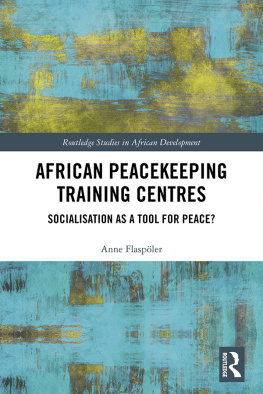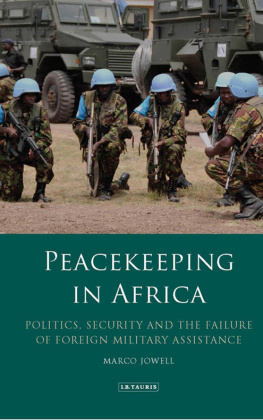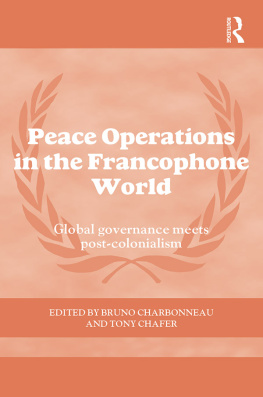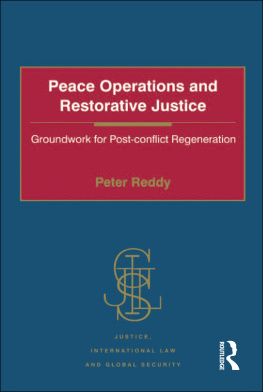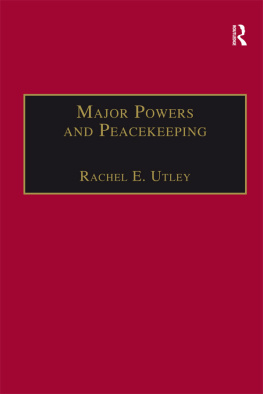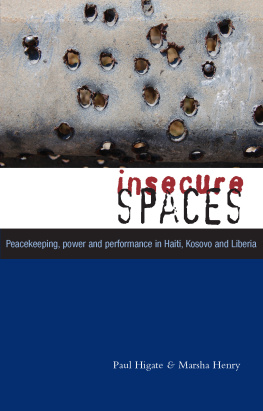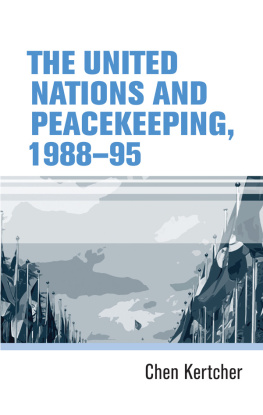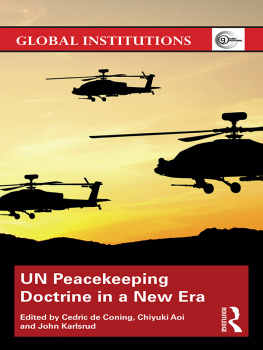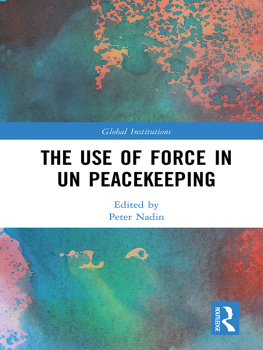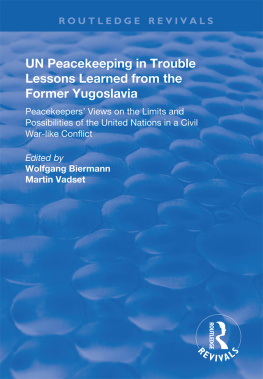African Peacekeeping Training Centres
Peacekeeping training centres play a crucial role in preparing peacekeepers for their deployment. However, despite their popularity within the international community as a tool for achieving international security, development, and state-building objectives, they have not received a great deal of analysis or academic attention. This book provides an in-depth analysis of peacekeeping training in Africa, tracing how centres have adapted to the operational and normative changes of peace operations over time and raising questions about the expectations attached to these training efforts and their impact.
The book examines training content and methods in detail, exploring the potential of peacekeeping training centres as sites for socialisation and diffusing international norms in an effort to change and shape peacekeepers behaviour. The analysis is based on two contrasting case studies, selected to show the spectrum of training centres operating in Africa, namely the Kofi Annan International Peacekeeping Training Centre (KAIPTC) in Accra, Ghana, and the African Centre for the Constructive Resolution of Disputes (ACCORD) in Durban, South Africa.
At a time when impact is being determined by the number of course attendees, this book provides an important critical assessment of training efforts and what they are supposed to achieve. It will be of interest to scholars and practitioners within the fields of international security, peacekeeping, and African development.
Anne Flaspler is a Senior Researcher at the EDDA Research Center and a Course Coordinator at the United Nations University Gender Equality and Studies Programme (UNU-GEST), University of Iceland.
Routledge Studies in African Development
Gender and the Political Economy of Conflict in Africa
The Persistence of Violence
Meredeth Turshen
Social Innovation in Africa
A Practical Guide for Scaling Impact
Ndidi Okonkwo Nwuneli
Political Transition and Inclusive Development in Malawi
The Democratic Dividend
Edited by Dan Banik and Blessings Chinsinga
National Liberation Movements as Government in Africa
Edited by Redie Bereketeab
Hunger and Poverty in South Africa
The Hidden Faces of Food Insecurity
Jacqueline Hanoman
Extractive Industries and Changing State Dynamics in Africa
Beyond the Resource Curse
Edited by Jon Schubert, Ulf Engel and Elsio Macamo
Peacebuilding in Contemporary Africa
In Search of Alternative Strategies
Edited by Kenneth Omeje
The Challenge of Governance in South Sudan
Corruption, Peacebuilding, and Foreign Intervention
Edited by Steven C. Roach and Derrick K. Hudson
African Peacekeeping Training Centres
Socialisation as a Tool for Peace?
Anne Flaspler
First published 2019
by Routledge
2 Park Square, Milton Park, Abingdon, Oxon OX14 4RN
and by Routledge
52 Vanderbilt Avenue, New York, NY 10017
Routledge is an imprint of the Taylor & Francis Group, an informa business
2019 Anne Flaspler
The right of Anne Flaspler to be identified as author of this work has been asserted by her in accordance with sections 77 and 78 of the Copyright, Designs and Patents Act 1988.
All rights reserved. No part of this book may be reprinted or reproduced or utilised in any form or by any electronic, mechanical, or other means, now known or hereafter invented, including photocopying and recording, or in any information storage or retrieval system, without permission in writing from the publishers.
Trademark notice: Product or corporate names may be trademarks or registered trademarks, and are used only for identification and explanation without intent to infringe.
British Library Cataloguing-in-Publication Data
A catalogue record for this book is available from the British Library
Library of Congress Cataloging-in-Publication Data
A catalog record has been requested for this book
ISBN: 978-0-8153-4662-3 (hbk)
ISBN: 978-1-351-17028-4 (ebk)
Typeset in Goudy
by Wearset Ltd, Boldon, Tyne and Wear
To begin with, I would like to thank the anonymous reviewers for their generous feedback. Special thanks also to Professor Alice Hills and Dr Simon Lightfoot for their invaluable feedback and tireless encouragement on the research at the centre of this book.
I also gratefully recognise the financial support of the EDDA Research Center and the UNU-GEST programme at the University of Iceland in realising this book project.
Many thanks also to all interviewees and training participants at the Kofi Annan International Peacekeeping Training Centre (KAIPTC), the African Centre for the Constructive Resolution of Disputes (ACCORD) and the Norwegian Institute of International Affairs (NUPI) who shared their experiences with me and in that way contributed to this book. In that context, I would also like to thank Mrs and Mr Egala for welcoming me into their home during my field research in Accra, as well as Kogie Reddy for taking such good care of me while conducting research in Durban.
I owe a huge debt of gratitude to Faiz Sheikh for his language review and corrections, as well as to Heidrun Wulfekhler and James Worrall for their feedback, spontaneous input, and reassurance.
Lastly, I would like to thank my family for their support, for cheering me on and tolerating the long hours I spent in front of the PC rather than with them.

